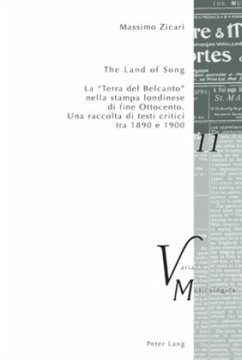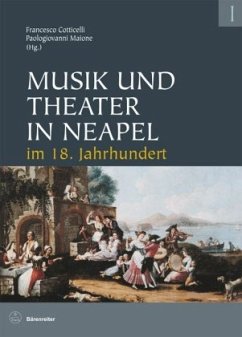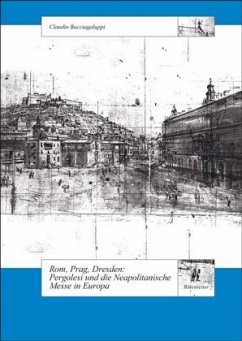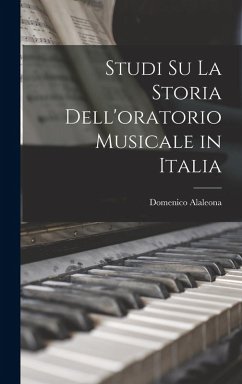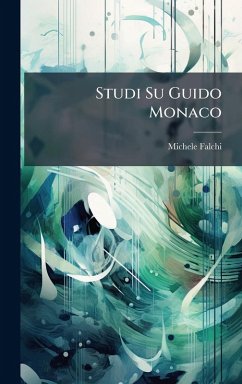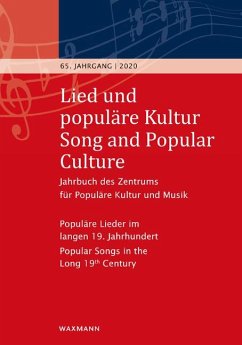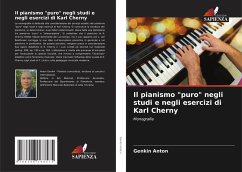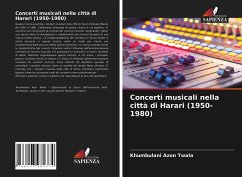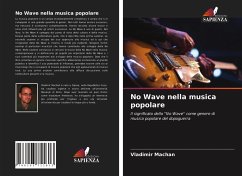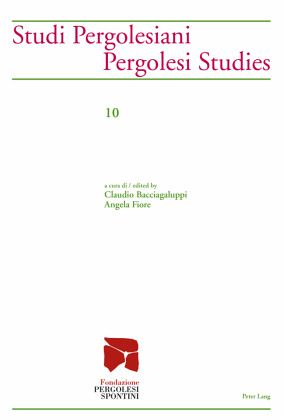
Studi Pergolesiani- Pergolesi Studies
Versandkostenfrei!
Versandfertig in 6-10 Tagen
46,10 €
inkl. MwSt.

PAYBACK Punkte
0 °P sammeln!
Il presente volume raccoglie i risultati di due seminari svoltisi nel 2011 a Roma e nel 2013 a Friburgo. Un'ampia gamma di soggetti è rappresentata nei saggi pubblicati, che spaziano dal tardo Cinquecento al pieno Settecento. Un saggio esce dalla città di Napoli per paragonare la vita musicale partenopea a quella palermitana. Alcuni saggi affrontano argomenti storici di ampia portata: il mecenatismo nobiliare al tempo degli ultimi viceré spagnoli; la pratica musicale nei monasteri e conservatori femminili napoletani, finora oscurata dai celebri conservatori maschili; i concerti per strument...
Il presente volume raccoglie i risultati di due seminari svoltisi nel 2011 a Roma e nel 2013 a Friburgo. Un'ampia gamma di soggetti è rappresentata nei saggi pubblicati, che spaziano dal tardo Cinquecento al pieno Settecento. Un saggio esce dalla città di Napoli per paragonare la vita musicale partenopea a quella palermitana. Alcuni saggi affrontano argomenti storici di ampia portata: il mecenatismo nobiliare al tempo degli ultimi viceré spagnoli; la pratica musicale nei monasteri e conservatori femminili napoletani, finora oscurata dai celebri conservatori maschili; i concerti per strumenti a fiato di autori attivi a Napoli, con i loro problemi analitici e attributivi. Altri saggi si soffermano su singoli compositori, analizzando specifiche composizioni e manoscritti. Si indagano così le composizioni di Giuseppe Scarlatti nella biblioteca del Conservatorio 'San Pietro a Majella', e la fortuna della Messa in fa maggiore di Giovanni Battista Pergolesi nell'Inghilterra del Settecento. Un ultimo saggio descrive infine i vantaggi di un'applicazione di tecnologie digitali nel correlare dati archivistici sui musicisti attivi a Napoli.
This volume collects the results of two seminars, held in 2011 in Rome and in 2013 in Fribourg. A wide range of subjects is represented in the essays, ranging from the late sixteenth to the mid-eighteenth century. An essay leaves the city of Naples to compare the musical life of Naples with that of Palermo. Some essays address broad historical subjects: the aristocratic patronage at the time of the last Spanish viceroys; musical practice in convents and female conservatories in Naples, hitherto obscured by the fame of the male conservatories; the concerts for wind instruments of authors active in Naples, raising issues of attribution and analysis. Other essays dwell on individual composers, analyzing specific compositions and manuscripts. Compositions by Giuseppe Scarlatti in the library of the Conservatory 'San Pietro a Majella', and the reception history of the Mass in F major by Giovanni Battista Pergolesi in eighteenth-century England are investigated. A final essay describes finally the advantages of an application of digital technologies in correlating archival data on musicians active in Naples.
This volume collects the results of two seminars, held in 2011 in Rome and in 2013 in Fribourg. A wide range of subjects is represented in the essays, ranging from the late sixteenth to the mid-eighteenth century. An essay leaves the city of Naples to compare the musical life of Naples with that of Palermo. Some essays address broad historical subjects: the aristocratic patronage at the time of the last Spanish viceroys; musical practice in convents and female conservatories in Naples, hitherto obscured by the fame of the male conservatories; the concerts for wind instruments of authors active in Naples, raising issues of attribution and analysis. Other essays dwell on individual composers, analyzing specific compositions and manuscripts. Compositions by Giuseppe Scarlatti in the library of the Conservatory 'San Pietro a Majella', and the reception history of the Mass in F major by Giovanni Battista Pergolesi in eighteenth-century England are investigated. A final essay describes finally the advantages of an application of digital technologies in correlating archival data on musicians active in Naples.




